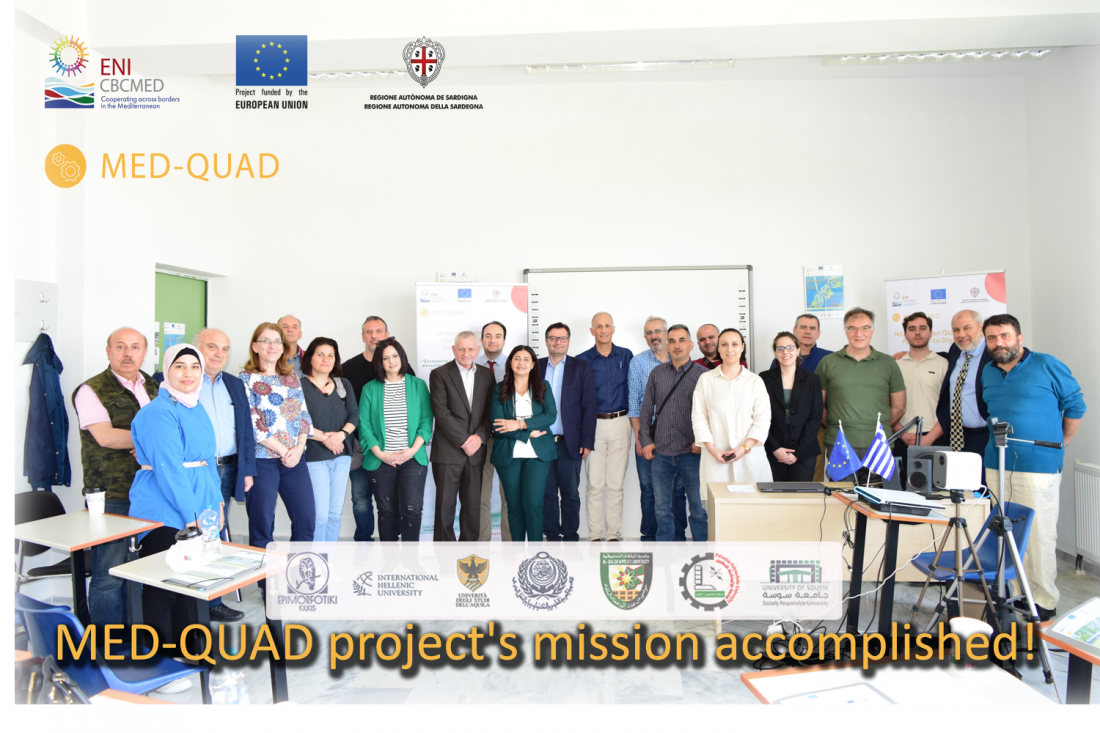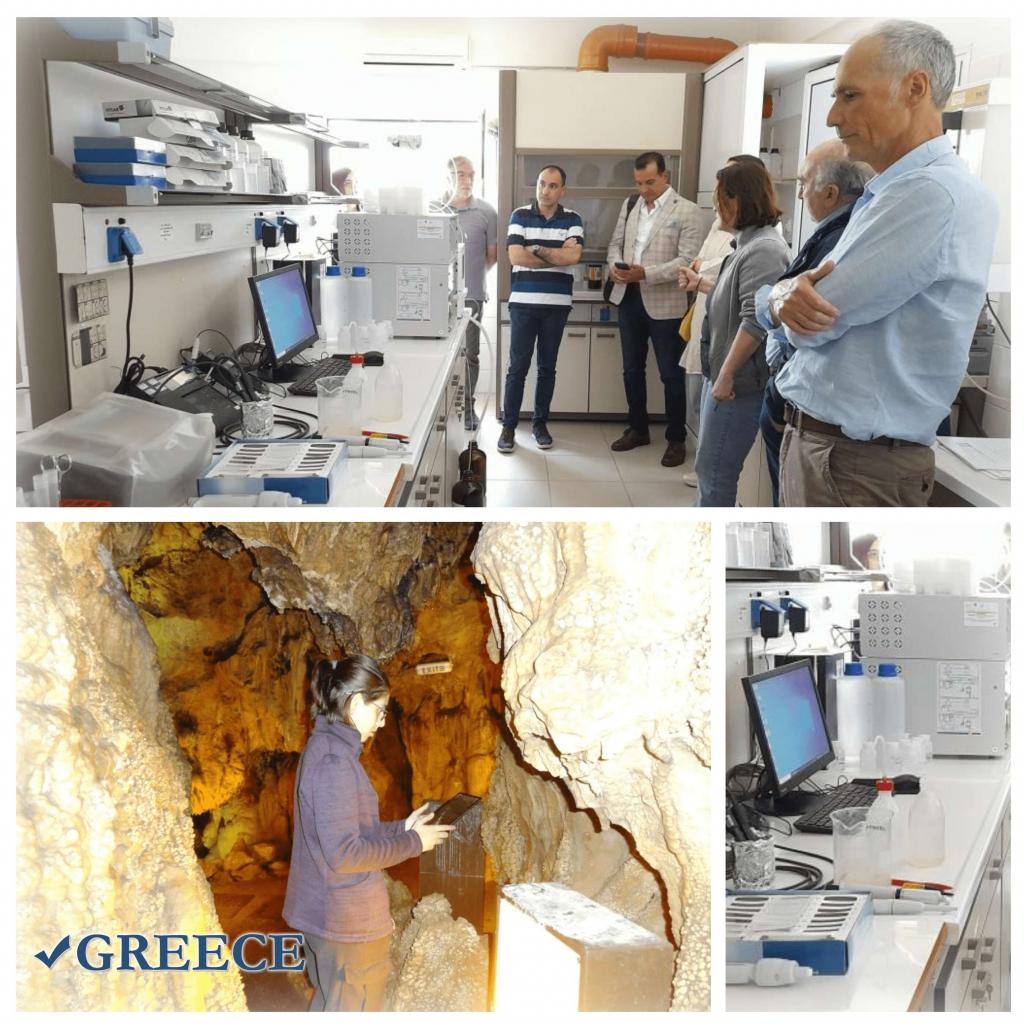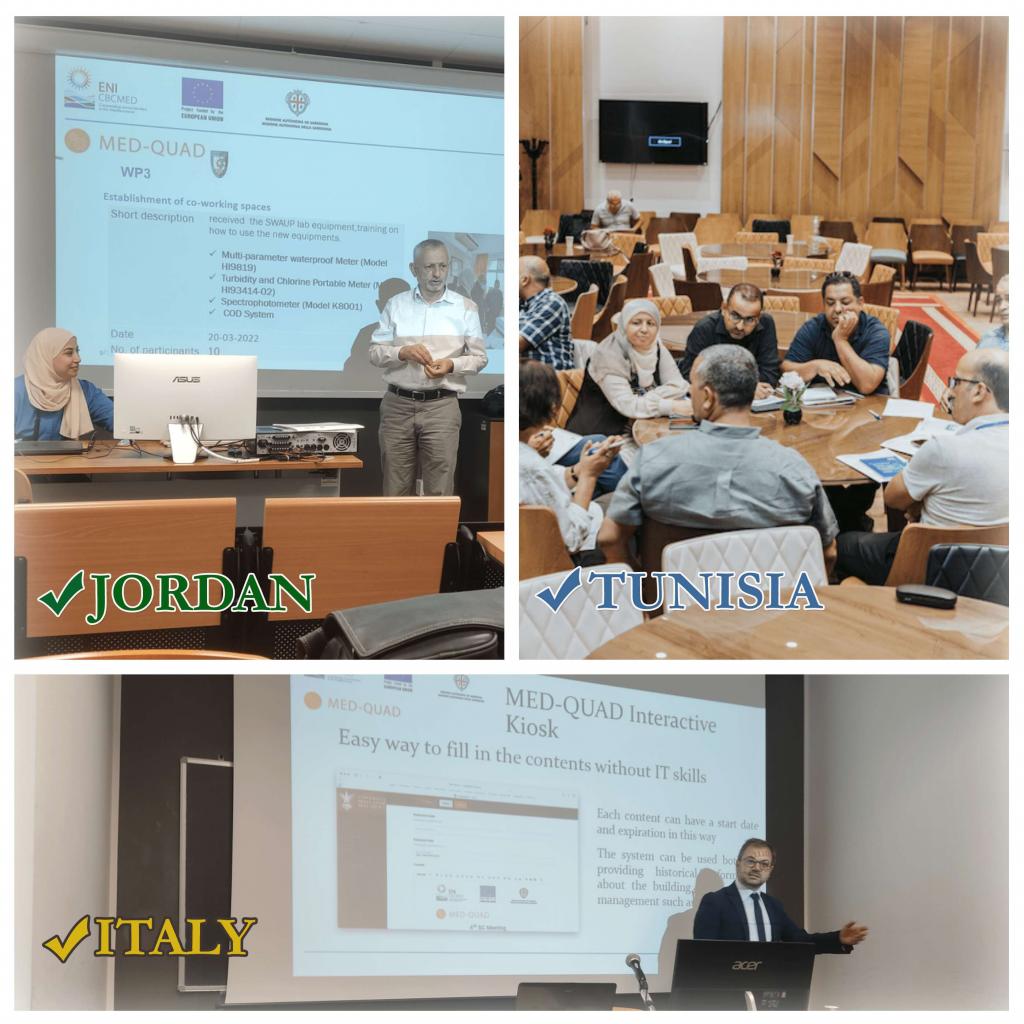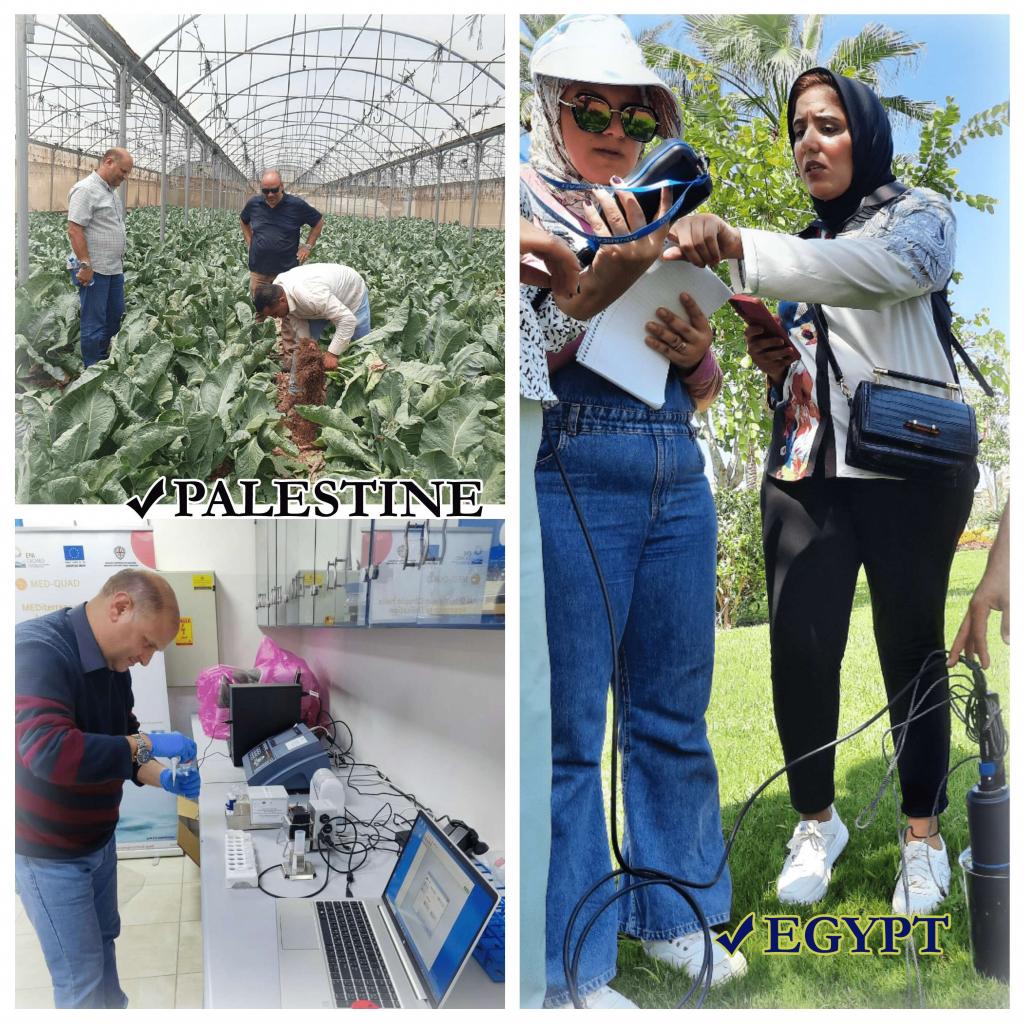MED-QUAD enhanced the use of IT for cultural heritage and better water use in 6 Mediterranean countries

The MED-QUAD project, co-financed by the European Union under the ENI CBC Med Program, started on September 8, 2020, and successfully concluded on November 7, 2023. Epimorfotiki Kilkis SM LLC, the Lead Beneficiary of the project, collaborated with universities from six Mediterranean countries to enhance cooperation among universities, businesses, local administrations, and society, utilizing the Quadruple Helix Approach. These partners, functioning as “Civic Universities”, achieved remarkable results in research and innovation through cross-border cooperation. The project's activities focused on the promotion of cultural heritage and water conservation, with the beneficiaries extending to not only official bodies but also citizens.
The administrative, scientific, and research staff of Epimorfotiki Kilkis SM LLC from Greece, the International Hellenic University (IHU), the University of L'Aquila (Italy), the Arab Academy for Science, Technology, and Maritime Transport – AASTMT (Egypt), Al-Balqa' Applied University – BAU (Jordan), Palestine Polytechnic University – PPU (Palestine), and the University of Sousse (Tunisia) worked diligently at both local and transnational levels. Together, these partners established two "Living Labs" (open spaces for citizen involvement in research) to facilitate cross-border cooperation in each participating country.
The first Living Lab was dedicated to "Smart Water Use Applications Living Lab-SWUAP," and the second focused on "Applied Research for Cultural Heritage Exploitation - ARCHEO Living Lab." These labs were outfitted with cutting-edge equipment, fostering interdisciplinary research collaborations between universities and small and medium-sized enterprises (SMEs). Research topics encompass water quality, sustainable production and commercialization of biomethane, effective treatment of olive mill wastewater, and addressing vitamin D deficiency in Mediterranean countries. Moreover, the Living Lab for Culture employed virtual and augmented reality to provide visitors from all over the world, whether they are physically present or virtually connected, with the unique opportunity to simulate rich cultural experiences.
As part of the project over 80 professionals received training in entrepreneurship, leading to the creation of innovative services and products. The services offered encompass informative, research, and educational aspects related to the fields of application of the activities. The products include two “Living Labs” established to enhance the quality and proper management of water, as well as to highlight cultural heritage. There is state-of-the-art laboratory equipment available for research and promotional activities, along with the Designing the role for “Civic Universities” and the proposal for the QH approach to research and innovation through the work “The Civic University in the global social challenges. Additionally, the project facilitated the establishment of over 20 collaborative initiatives. Notably, MED-QUAD played a vital role in reinforcing the concept of a “Civic University” by fostering the development of “City Development Groups”. The specific groups comprise representatives from the Quadruple Helix, working on sustainable regional development in terms of water quality and the promotion of cultural heritage through digitization in their city. This achievement reflects the commitment to operate the university with a strong social conscience, focusing not only within the city but also for the benefit of the citizens. It has strengthened collaboration with local authorities and society at large.
For those interested in learning more about the project's results, a video showcasing the accomplishments within the MED-QUAD framework is available.












